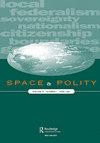价值链:新的经济帝国主义
IF 1.1
Q2 GEOGRAPHY
引用次数: 0
摘要
密苏里州,作为抵抗“物流资本主义”的一种形式。这一行动不仅与最近美国警察对非裔美国人的谋杀一起激发了“黑人的命也是命”运动,它还强调了“种族秩序已经成为生产形式的组成部分,这种生产形式越来越与社会关系和生活形式的形成密不可分”,因此它们努力模糊了结构性和偶然性之间的区别(第174页)。此外,要理解动摇旧的政治形式和既定的工人阶级政治的当代工人斗争,需要重新考虑活劳动和社会合作之间的关系。工人和其他从属人群正在创造创造性和集体的方式来抵抗和生存,但通常不是以使他们能够逃离掠夺性资本主义或压迫性国家的方式。在考虑土著人民反对采掘主义的斗争时,作者使用了“边界斗争”一词,这不仅强调了反对采掘主义的政治斗争沿着不同的身份轴展开,而且强调了从这种斗争中产生的意义的扩散。以玻利维亚的TIPNIS案例为例,他们强调,反对采掘主义的斗争总是远不止是反对资源行业本身,而且会产生相当复杂的政治主观性。本书以谨慎乐观的态度收尾。它提出的问题是,在新自由主义变得更具惩罚性和压制性,但社会运动变得更加自主和自我组织的情况下,我们需要制定什么样的政治来对抗资本的运作。虽然国家将继续扮演重要角色,但作者指出,“激进变革的政治不能以国家为中心”,而必须在日常生活空间和超越民族国家的跨国空间中锻造。政治变革将从他们所谓的“双重权力”中出现,这种政治涉及国家资本安排的权力争夺以及国家内外的政治行动。我们需要利用国家,同时建立超越国家的集体力量。虽然它的理论折衷主义和地理混杂使这本书具有挑战性,但这也意味着它在某种程度上为每个人提供了一些东西。我发现自己从我非常熟悉的理论辩论和说明性案例研究转向了对我来说完全陌生的其他人。我相信很多读者会以同样的方式阅读这本书,这些不同的争论被带入对话的方式是这本书的一个关键优势。本文章由计算机程序翻译,如有差异,请以英文原文为准。
Value chains: the new economic imperialism
Missourri, as a form of resistance to ‘logistical capitalism’. Not only did this act in combination with all of the recent murders of African Americans by police in the US galvanize the Black Lives Matter movement, it also underscores the extent to which ‘racial ordering has become integral to forms of production that are increasingly inseparable from the making of social relations and forms of life’ and thus they work to blur the difference between the structural and the incidental (p. 174). Furthermore, understanding contemporary workers’ struggles that unsettle old political forms and well-established working-class politics requires a reconsideration of the relationship between living labour and social cooperation. Workers and other subordinated populations are generating creative and collective ways to resist and survive, but usually not in ways that enable them to escape predatory capitalism or repressive states. In their consideration of Indigenous struggles against extractivism, the authors use the term ‘boundary struggles’, which underscores not only the different identity axes along which political struggles against extractivism unfold, but also the proliferation of meanings that emerge out of such struggles. Drawing on the TIPNIS case in Bolivia, they emphasize how struggles against extractivism are always about much more than opposition to the resource industries themselves and produce quite complex political subjectivities. The book concludes with some cautious optimism. It asks what kind of politics we need to enact to confront the operations of capital in a conjuncture in which neoliberalism has becomemore punitive and repressive, but inwhich socialmovements have becomemore autonomous and self-organizing. While the state will continue to be an important actor, the authors note that ‘a politics of radical transformation cannot be centeredon the state’butmust insteadbe forged both in the spaces of everyday life and in transnational spaces beyond the nation-state. Political change will emerge from what they call ‘dual power’, a politics that involves the contestation of state-capital arrangements of powers along with political actions outside and beyond the state. We need to use the state while establishing a collective power that exceeds it. While its theoretical eclecticism and geographical promiscuity make the book challenging to read, it also means that in a way that it offers something for everyone. I found myself moving from theoretical debates and illustrative case studies with which I was very familiar to others that were completely new to me. I’m sure that many readers will read the book in the same way, and the way these different debates have been brought into dialogue is a key strength of the book.
求助全文
通过发布文献求助,成功后即可免费获取论文全文。
去求助
来源期刊

SPACE AND POLITY
GEOGRAPHY-
CiteScore
4.10
自引率
4.20%
发文量
19
期刊介绍:
Space & Polity is a fully refereed scholarly international journal devoted to the theoretical and empirical understanding of the changing relationships between the state, and regional and local forms of governance. The journal provides a forum aimed particularly at bringing together social scientists currently working in a variety of disciplines, including geography, political science, sociology, economics, anthropology and development studies and who have a common interest in the relationships between space, place and politics in less developed as well as the advanced economies.
 求助内容:
求助内容: 应助结果提醒方式:
应助结果提醒方式:


